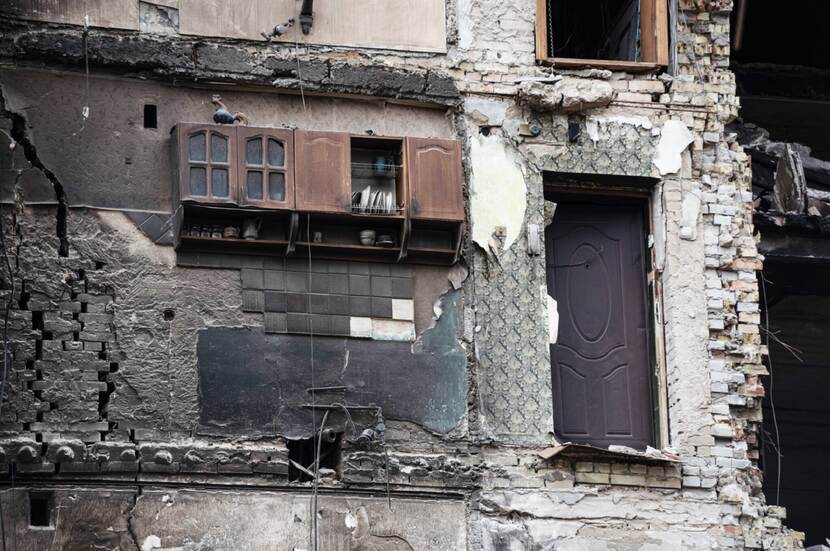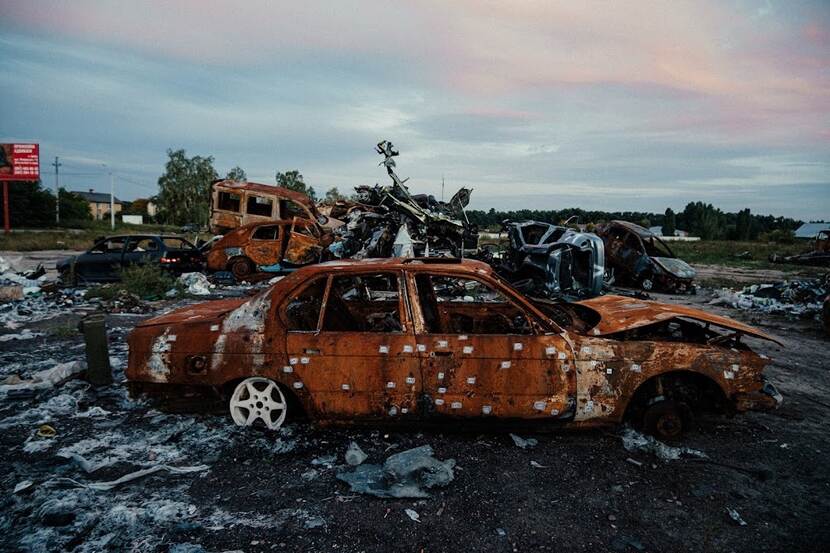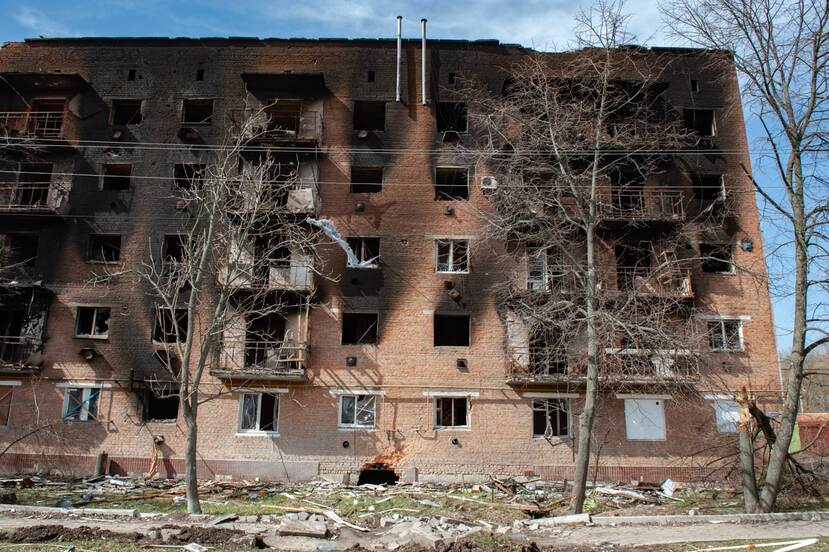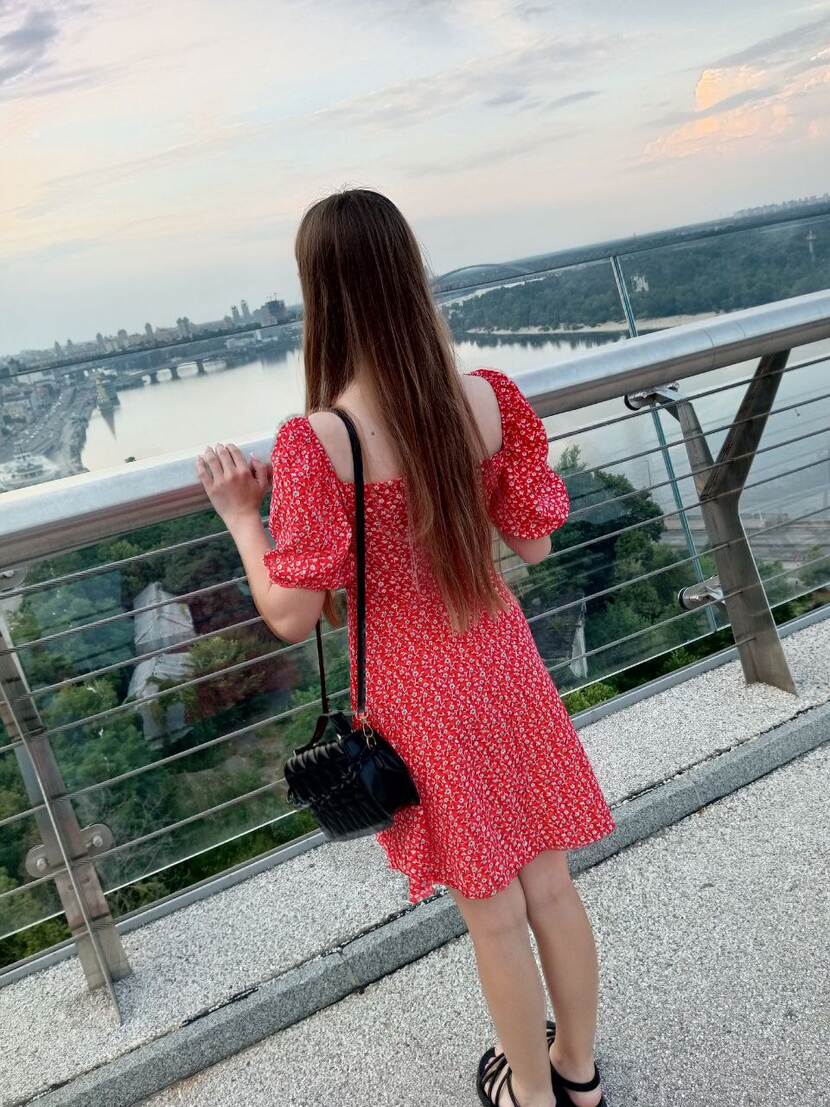Life under Russian occupation: ‘Being Ukrainian – or even talking about Ukraine – puts your life at risk’
Weblogs
On 24 August it will be Independence Day in Ukraine. But that independence is by no means a given. Especially in the areas occupied by Russia, where the Ukrainian language and traditions have been banned and the population forced to take on a Russian nationality. Speaking from Kyiv, 17-year-old Olia talks about her childhood in the Donetsk region, and what it was like to live under Russian occupation for almost a decade.

Sexual and gender-based violence, murder, abductions – including of children – and the Russification of the Ukrainian population. In the areas illegally occupied by Russia, its troops are guilty of the large-scale perpetration of terrible cruelties and war crimes.
The Netherlands supports Ukraine in its battle for freedom. It is crucial to ensure that the borders are not changed by force. Read more about why it’s important that we continue to support Ukraine or about Dutch aid for Ukraine from day to day.
Banned language and traditions
Olia was 7 years old when Russian soldiers first invaded the region of her birth. She grew up in the east of Ukraine, in Donetsk, one of the regions where the fighting has been intense since the large-scale Russian invasion in 2022. Around 70% of the province is now in Russian hands.
The region had been invaded by Russian troops in 2014, years before the large-scale invasion. At school, Olia soon experienced the first consequences of the occupation: ‘In the beginning we had Ukrainian lessons every day. Then we had them once a week, and eventually they stopped altogether.’ Ukrainian national holidays, like the ‘Day of the First Bell’, marking the first day of school, were banned. ‘On days like these we would sing Ukrainian songs and wear national dress: the ‘vyshyvanka’, a traditional embroidered shirt. From 2022, all the holidays that were linked to Ukrainian traditions were completely abolished.’
‘You couldn’t just go for a walk or sit in the park. We lived in constant fear.’
Time has stood still
Since the occupation, time in Donetsk seems to have stood still. She grew up in a thriving region, where there was always something going on. There were modern buildings and new roads, Olia says: ‘After the first invasion, construction came to a halt and the roads were no longer maintained. Flags also appeared everywhere. First those of the so-called “Donetsk People’s Republic”, later the Russian flag.’
For much of her childhood and teenage years, Olia lived under the Russian occupation. In the months after the first invasion, she often had to flee to an air-raid shelter. Even after that time she avoided open spaces, and the fear of rocket attacks and shelling remained. ‘Most people were too scared to go out, they tended to stay at home. You couldn’t just go for a walk or sit in the park. We lived in constant fear.’


Russian passport
As in many other occupied areas, Olia and her parents were forced to take on a Russian nationality. This potentially has major consequences, for instance regarding access to basic facilities like healthcare, and travel to other regions in Ukraine. ‘And you can’t refuse,’ Olia explains. ‘Everyone just had a Russian passport forced on them.’
She no longer has that Russian passport, she says proudly. When she left Donetsk, she left it behind at the border.
Dangerous textbooks
It was difficult for Olia to foresee what the journey to Kyiv had in store. Her family had to pass two checkpoints before they could leave the region via a ‘green corridor’, one of the humanitarian corridors set up to provide safe passage. ‘We were very lucky at the first checkpoint,’ Olia says. ‘It was only when we got to the border that I remembered that my Ukrainian textbooks were in my mother’s bag. Fortunately her bag wasn’t checked, because it can be very dangerous to have books like that in your possession.’
Olia threw away her textbooks before they got to the next checkpoint. ‘The Russian soldiers were very thorough and examined all our bags and documents. When they checked our phones, they found out we were Ukrainian. So they made us sing the Russian national anthem. Only then did they let us through.’

Studying in Kyiv
Olia left Donetsk to study in Kyiv. A number of universities keep special places free for students from occupied areas. They don’t have to pay tuition fees and are given the option of a course in Ukrainian language and history. ‘My parents wanted me to study at a Ukrainian university, and they helped me to go to Kyiv, where my sister already lived. I’m now studying law, so that one day I can defend human rights.’
‘Under occupation it’s difficult to retain your identity, because being Ukrainian – or even talking about Ukraine – puts your life at risk.’
Celebrating Ukraine
It’s important to celebrate Independence Day, especially at a time like this, Olia says. ‘This is the second year in a row that I’ve been able to openly celebrate the day. Because of the war there aren’t any big events, but at least I can freely walk the streets of Kyiv.’ The day will be marked in Donetsk too, Olia is sure. ‘In my region, people will exchange good wishes. Today they will be celebrating Ukraine – in secret, of course.’
Olia’s parents, who still live in the Donetsk region in order to care for her grandmother, are also in her thoughts. Ten years of occupation have done nothing to diminish her parents’ pride in their Ukrainian identity. ‘Under occupation it’s difficult to retain your identity, because being Ukrainian – or even talking about Ukraine – puts your life a risk. Yet they constantly told me: “We’re living under Russian occupation, but we live in Ukraine. We are Ukrainians.”’
Dutch support for UkraineFor three years now, Ukrainians have been fighting for their freedom, and thus also for European security. The Netherlands supports Ukraine by financing the provision of humanitarian aid, reconstruction, aid to victims, medicines and supplies. It also supports investigations of violations of human rights and international humanitarian law. Want to find out more? See also:
|
More blog posts
Leave a comment
Inappropriate comments will be removed. Comments are limited to 2000 characters.
Comments
No comments have been published yet.